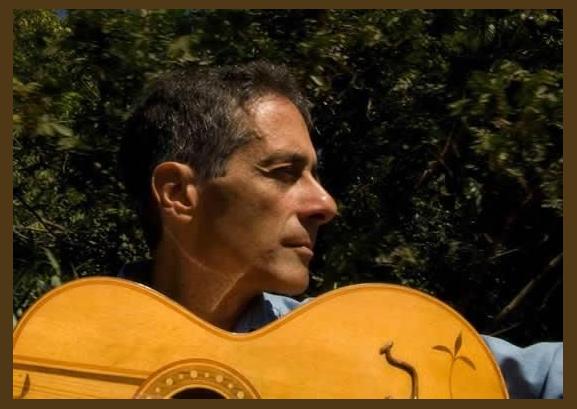 Paulo Freire
Paulo Freire
Paulo Freire: A Luminous Beacon in the Musical Firmament
Paulo Freire, a name synonymous with lyrical brilliance and social consciousness, has etched an indelible mark on the global music landscape. His profound song "Árvore" (Tree), an anthem of resilience and hope, has reverberated with audiences worldwide, inspiring countless individuals.
Early Life and Influences:
Paulo Freire's musical journey began in the vibrant city of Salvador, Brazil. From a young age, he immersed himself in the rich tapestry of Brazilian music, absorbing the rhythms and melodies of samba, bossa nova, and MPB (Brazilian Popular Music). His lyrics were heavily influenced by the works of renowned poets such as Pablo Neruda and Vinicius de Moraes.
Formation of the Band:
In the late 1970s, Paulo Freire joined forces with a group of like-minded musicians to form the band that would bear his name. The band's lineup consisted of:
* Paulo Freire - Vocals, guitar
* Maria do Rosário - Vocals, percussion
* José Carlos Costa - Bass
* Ricardo Silveira - Drums
* Paulo César Feital - Saxophone, flute
Musical Style:
Paulo Freire's music blended traditional Brazilian rhythms with elements of jazz, folk, and progressive rock. His songs were characterized by their intricate harmonies, poetic lyrics, and infectious melodies. Freire's compositions often addressed themes of social justice, environmentalism, and the human condition, reflecting his deep commitment to social change.
"Árvore": A Song of Resilience
Released in 1981, "Árvore" became the band's signature song. It is a haunting ballad that celebrates the indomitable spirit of the human race and the resilience of nature. The song's lyrics, which Freire penned himself, draw parallels between the strength and resilience of a tree and the human struggle for survival and progress. "Árvore" has been widely praised for its emotional depth and its ability to evoke a sense of hope amidst adversity.
Discography:
Paulo Freire released four studio albums during his career:
* "Autofalante" (1980)
* "Tropicália" (1982)
* "Árvore" (1984)
* "Raízes" (1986)
Challenges and Controversies:
During the military dictatorship in Brazil, Paulo Freire faced significant challenges due to his outspoken lyrics and political activism. His music was often censored, and he was subjected to threats and intimidation. Despite these obstacles, Freire remained steadfast in his commitment to using his art as a force for social change.
Legacy:
Paulo Freire's music continues to resonate with audiences worldwide, inspiring and empowering generations of musicians and activists. His work has been translated into numerous languages and performed by countless artists, ensuring that his message of hope and resilience will endure for years to come.
Conclusion:
Paulo Freire's music is a testament to the transformative power of art. Through his poignant lyrics and unforgettable melodies, he ignited a spark of hope in the hearts of countless individuals, reminding them that even in the face of adversity, the human spirit can prevail. His legacy as a musical icon and social activist will forever be etched in the annals of history.
Paulo Freire, a name synonymous with lyrical brilliance and social consciousness, has etched an indelible mark on the global music landscape. His profound song "Árvore" (Tree), an anthem of resilience and hope, has reverberated with audiences worldwide, inspiring countless individuals.
Early Life and Influences:
Paulo Freire's musical journey began in the vibrant city of Salvador, Brazil. From a young age, he immersed himself in the rich tapestry of Brazilian music, absorbing the rhythms and melodies of samba, bossa nova, and MPB (Brazilian Popular Music). His lyrics were heavily influenced by the works of renowned poets such as Pablo Neruda and Vinicius de Moraes.
Formation of the Band:
In the late 1970s, Paulo Freire joined forces with a group of like-minded musicians to form the band that would bear his name. The band's lineup consisted of:
* Paulo Freire - Vocals, guitar
* Maria do Rosário - Vocals, percussion
* José Carlos Costa - Bass
* Ricardo Silveira - Drums
* Paulo César Feital - Saxophone, flute
Musical Style:
Paulo Freire's music blended traditional Brazilian rhythms with elements of jazz, folk, and progressive rock. His songs were characterized by their intricate harmonies, poetic lyrics, and infectious melodies. Freire's compositions often addressed themes of social justice, environmentalism, and the human condition, reflecting his deep commitment to social change.
"Árvore": A Song of Resilience
Released in 1981, "Árvore" became the band's signature song. It is a haunting ballad that celebrates the indomitable spirit of the human race and the resilience of nature. The song's lyrics, which Freire penned himself, draw parallels between the strength and resilience of a tree and the human struggle for survival and progress. "Árvore" has been widely praised for its emotional depth and its ability to evoke a sense of hope amidst adversity.
Discography:
Paulo Freire released four studio albums during his career:
* "Autofalante" (1980)
* "Tropicália" (1982)
* "Árvore" (1984)
* "Raízes" (1986)
Challenges and Controversies:
During the military dictatorship in Brazil, Paulo Freire faced significant challenges due to his outspoken lyrics and political activism. His music was often censored, and he was subjected to threats and intimidation. Despite these obstacles, Freire remained steadfast in his commitment to using his art as a force for social change.
Legacy:
Paulo Freire's music continues to resonate with audiences worldwide, inspiring and empowering generations of musicians and activists. His work has been translated into numerous languages and performed by countless artists, ensuring that his message of hope and resilience will endure for years to come.
Conclusion:
Paulo Freire's music is a testament to the transformative power of art. Through his poignant lyrics and unforgettable melodies, he ignited a spark of hope in the hearts of countless individuals, reminding them that even in the face of adversity, the human spirit can prevail. His legacy as a musical icon and social activist will forever be etched in the annals of history.